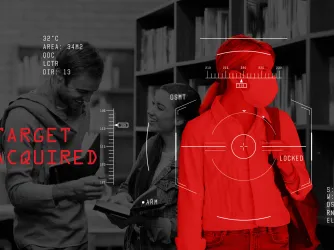Table of Contents
What’s The Problem With Social Justice?
When FIRE criticizes institutions for assessing students based on their commitments to concepts such as “social justice,” one common question we hear is: what’s so wrong with that? Can’t everyone agree that social justice is a good thing?
The problem is that in academia, certain terms, including social justice, have become politically and ideologically loaded. Mark Bauerlein, a professor of English at Emory University, provides interesting insight into this phenomenon today on Inside Higher Ed. Bauerlein discusses how academics first propagated the notion that that language has “implicit meaning…much of it political or identity-oriented,” and yet are now falling back on the traditionally “conservative” notion that words should be taken at face value in order to defend themselves against charges of bias (such as the charge that it is inappropriate to judge people on their commitment to social justice.)
Bauerlein also notes that academics tend to issue denials when charged with bias in their use of politically-charged language. Of these people, Bauerlein asks: “Have they lived so long and so closely to ‘social justice,’ ‘social change,’…and ‘gender equality’ that they do not recognize them as loaded terms? ... By their own instruction, we should regard the widespread attention to race, gender, and social construction as emanating from a world view and signaling an ideological commitment.”
Those who do not see the danger inherent in judging people on the basis of their commitment to terms like “social justice” would do well to read Bauerlein’s thought-provoking article.
Recent Articles
Get the latest free speech news and analysis from FIRE.

Will free expression make a comeback at Haverford College?
Known for its principled activism, Haverford has recently become a cautionary tale of campus censorship. But a new committee report signals a turning point — and a chance to restore its proud tradition.

FIRE statement on FCC approval of Skydance-Paramount acquisition
The FCC has no business dictating the editorial choices of media outlets or conditioning merger approval on the viewpoints a network chooses to air.

The mercenary spyware industry is a menace to global free expression
As authoritarian regimes weaponize commercial spyware to silence critics, a booming mercenary surveillance industry thrives in the shadows — and even democracies aren’t immune.

Smile for the surveillance state
With mask bans spreading across college campuses, Nora Mitchell explores how these policies are eroding academic freedom.